The Doctor, Susan, Barbara and Ian arrive on the planet Skaro, where war has been raging between the Thal and the Daleks for 500 years.
Temporal paradoxes, vintage wines and the coolest tricycle chase ever!
Podcast: Play in new window | Embed
World peace is threatened and once again only a peace conference, in full attendance, can avert a third world war. Sir Reginald Styles, as the world’s greatest party planner, won’t take no for an answer, and is jet-setting off to Peking to convince the Chinese delegate to join the conference as well.
Future history, however, tells of how Sir Reginald was in fact the cause of the war. Thus, guerrilla soldiers from the future have arrived in the 1970s with the intention to kill him and prevent both the war and the subsequent invasion of Daleks. And the Daleks are in parallel sending back alien Klingon-like ogres known as Ogrons to stop the future soldiers.
To summarise, Daleks tell people from the future to send aliens to Earth’s past to kill guerrillas from the future before they can kill a human from the past so he can’t cause a war that will kill a lot of people in the future.
Temporal paradoxes, vintage wines and the coolest tricycle chase ever ensue.
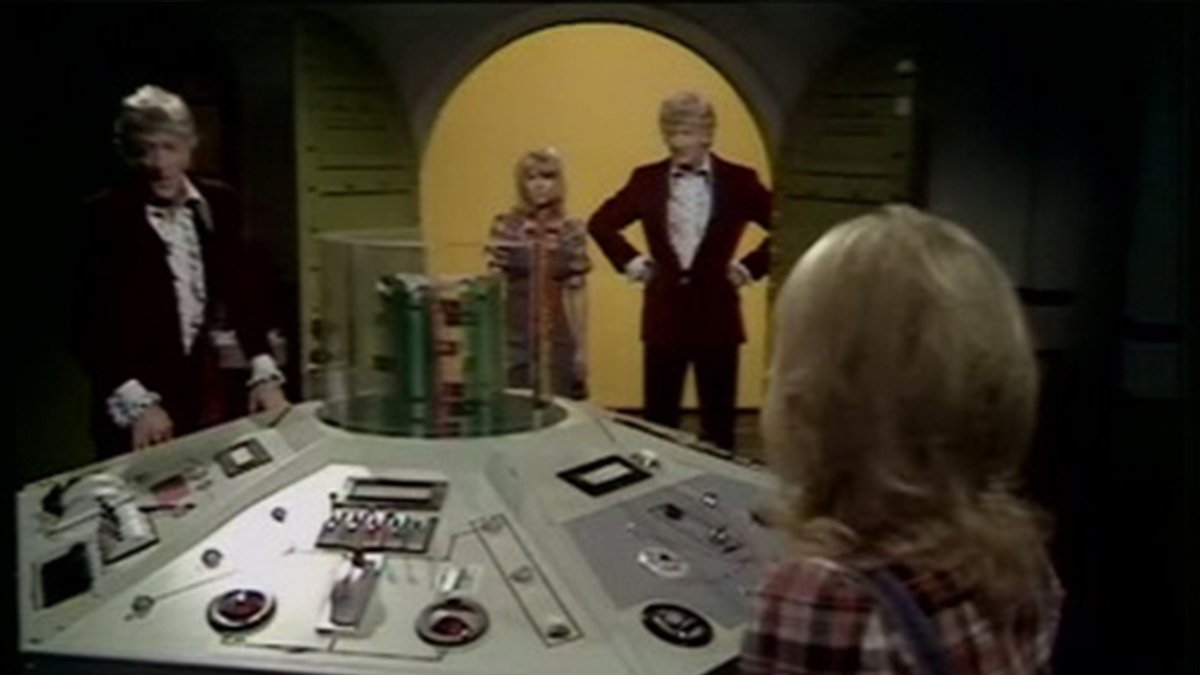

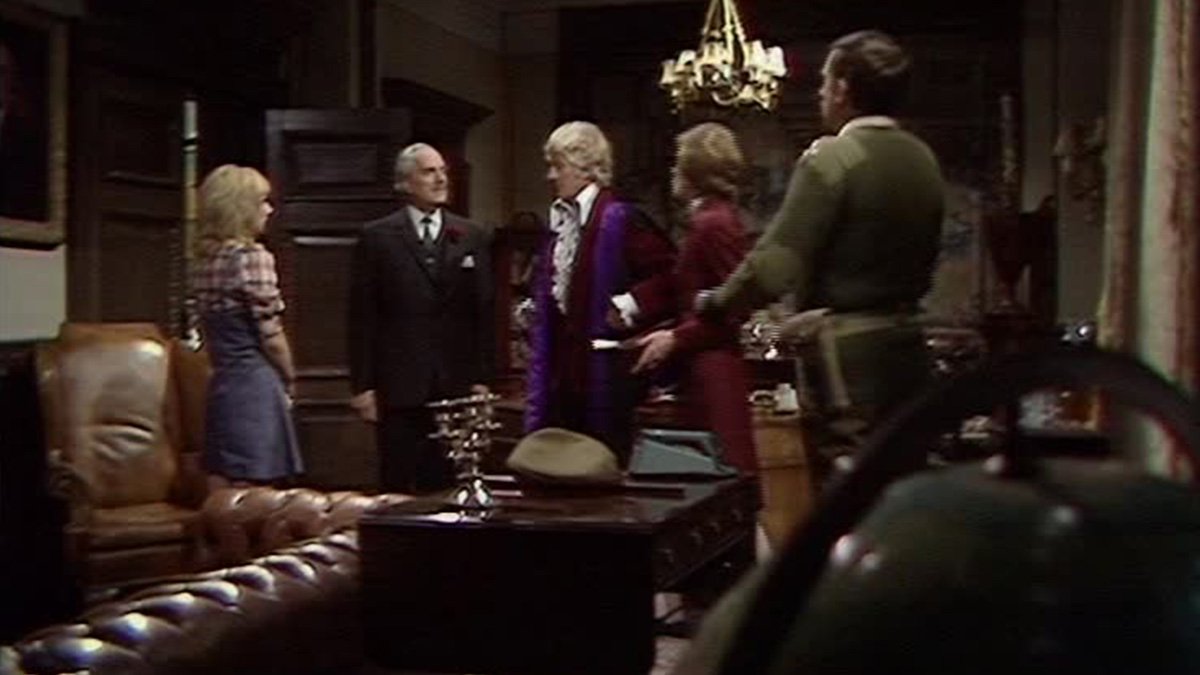

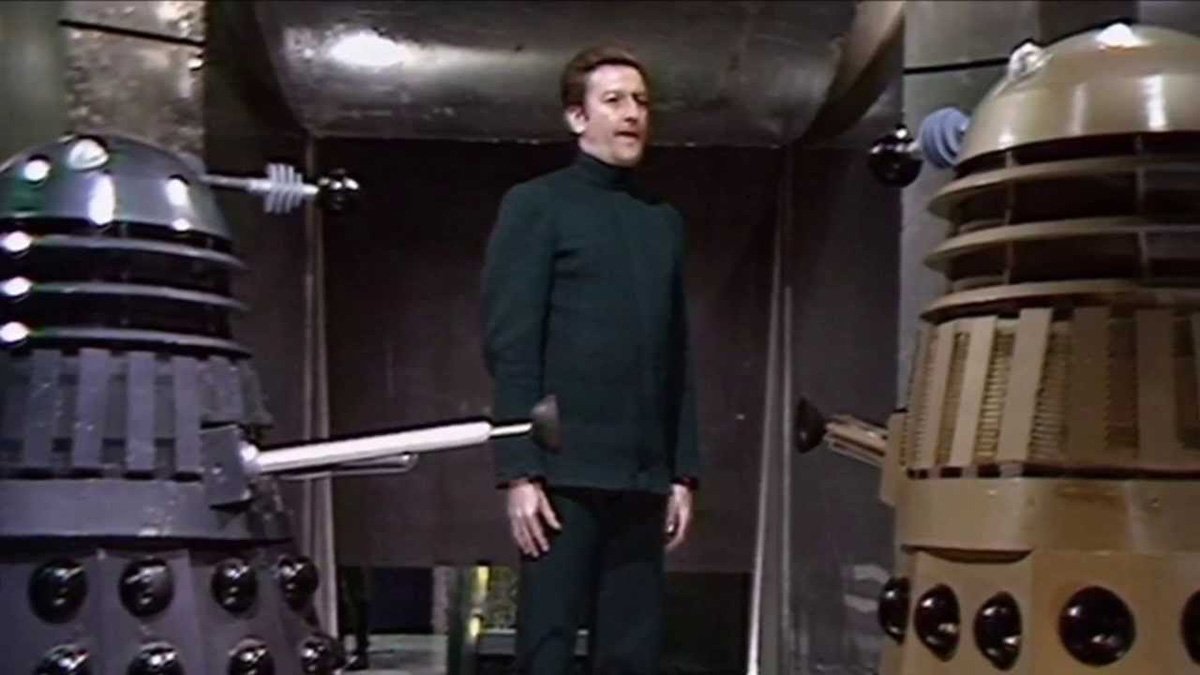

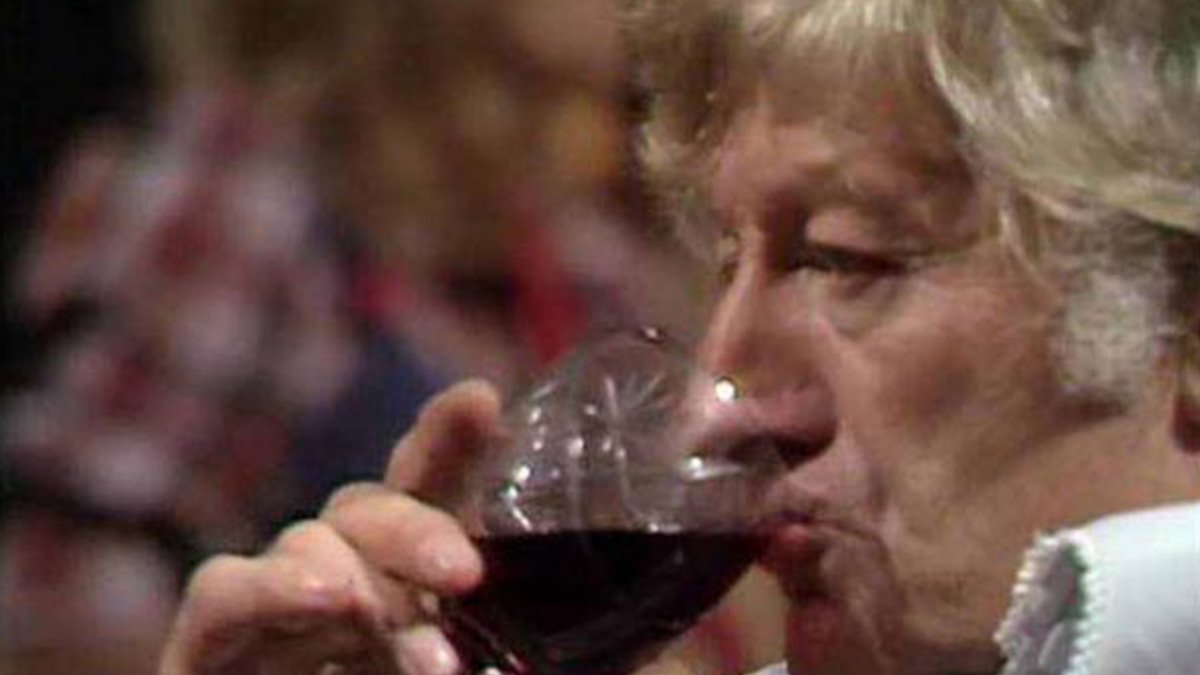

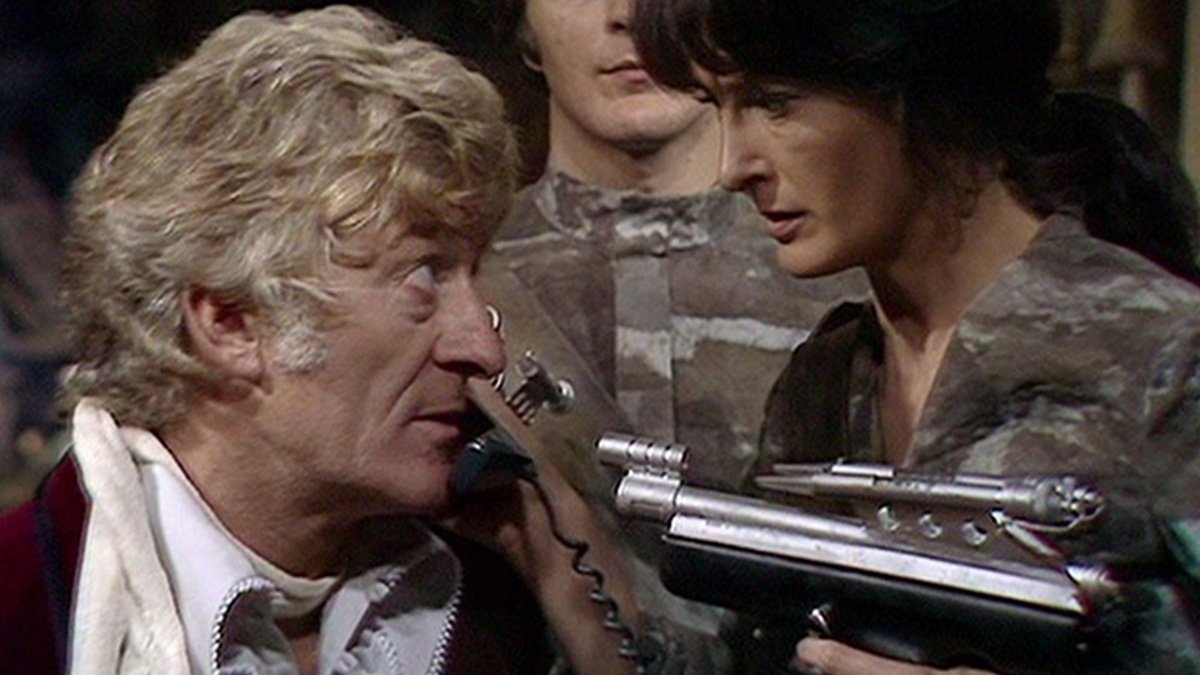

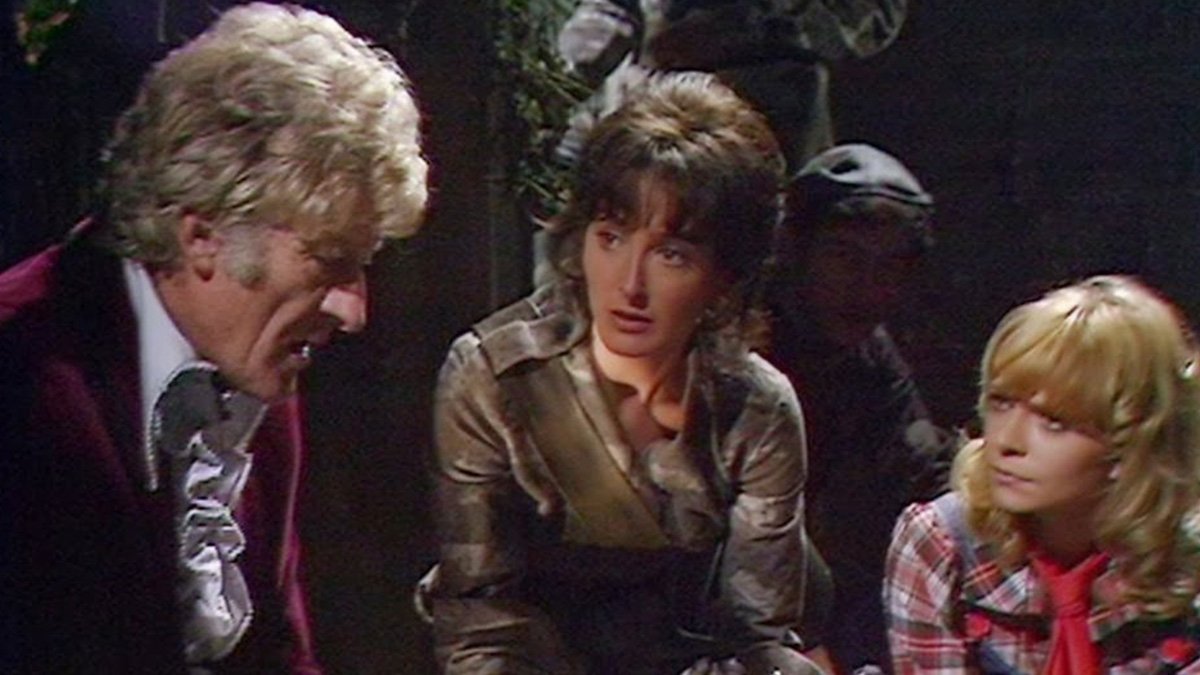

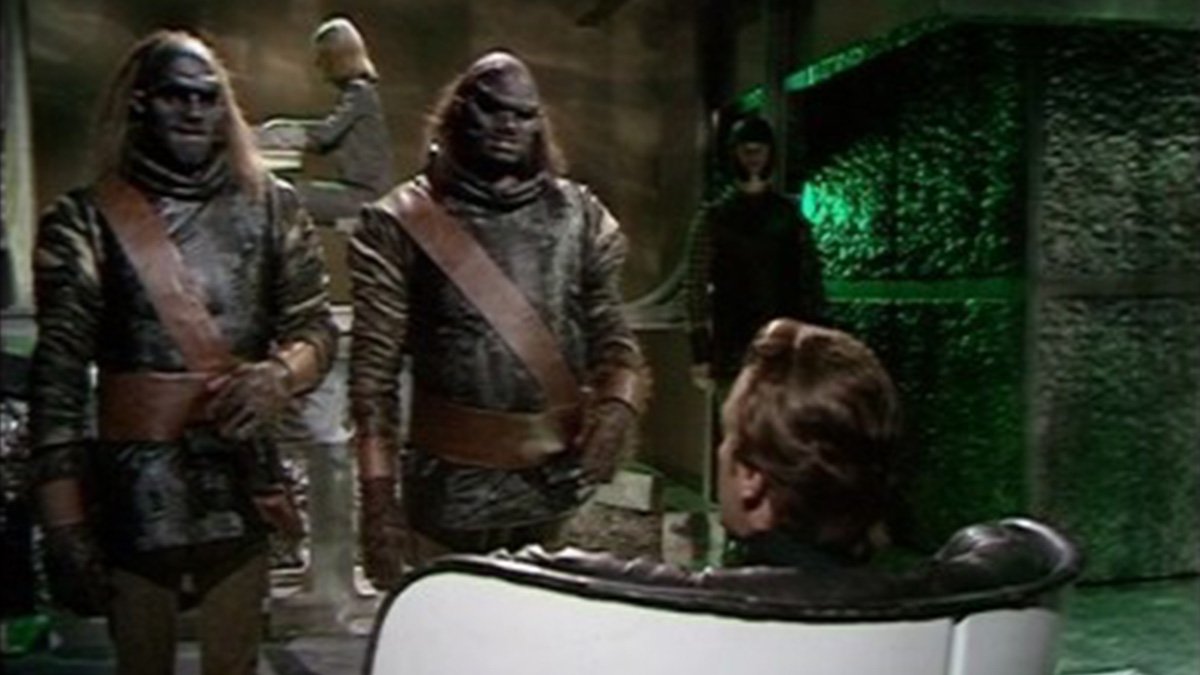

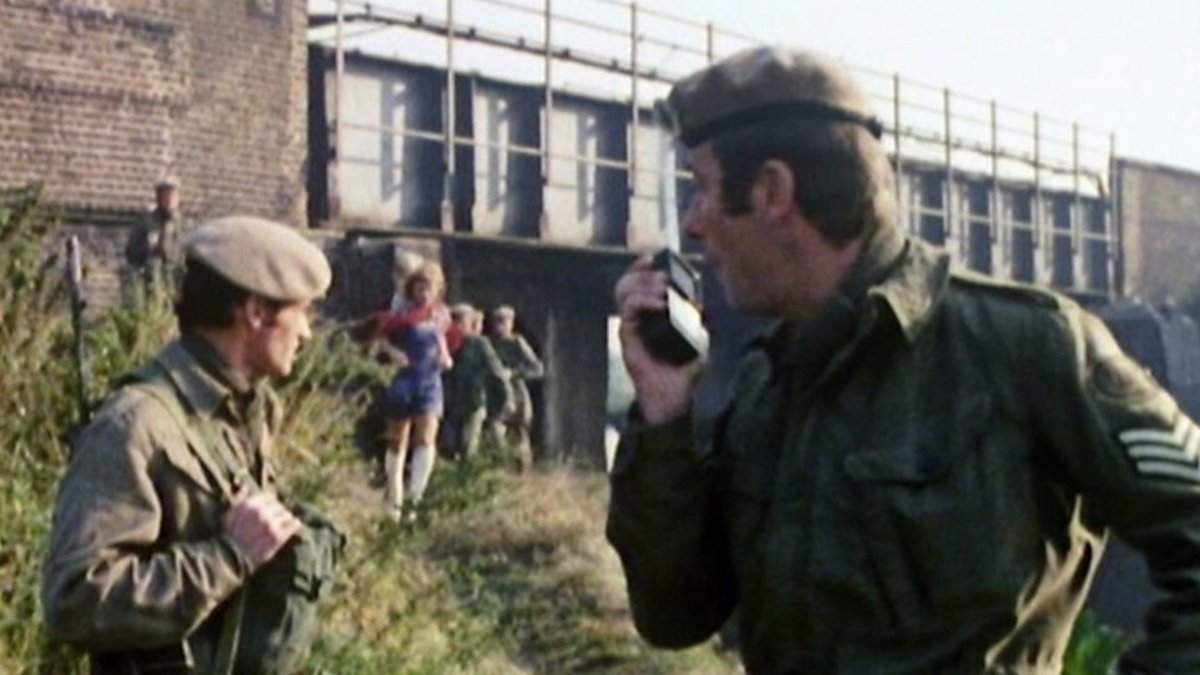

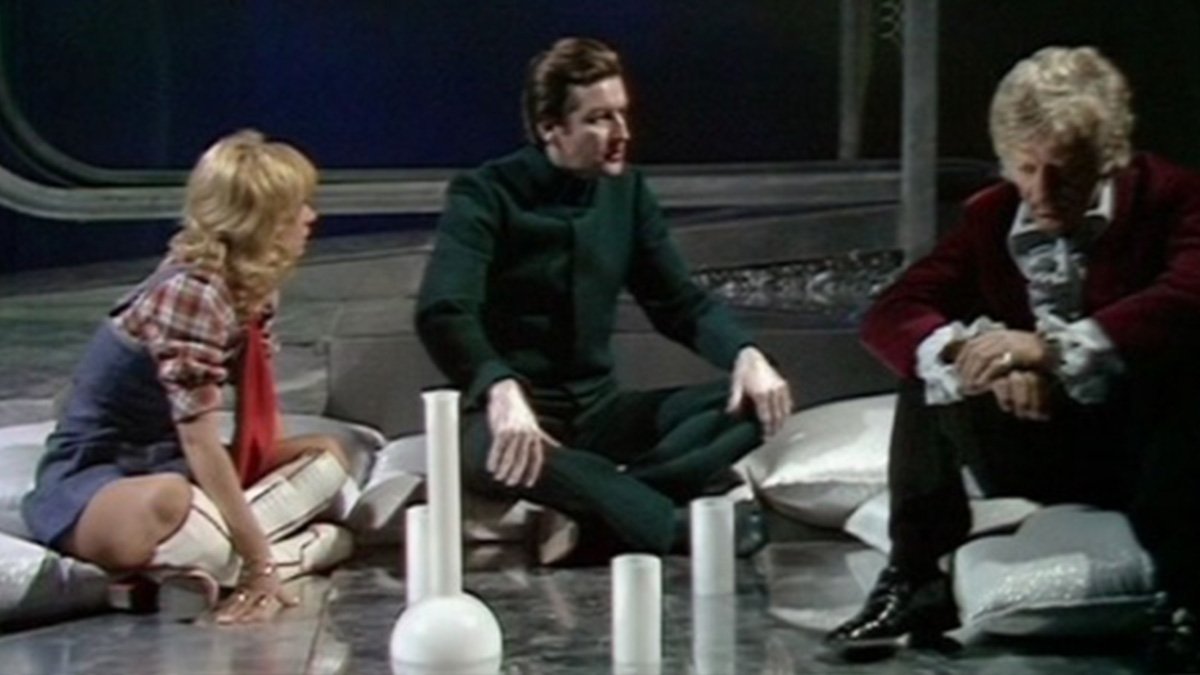

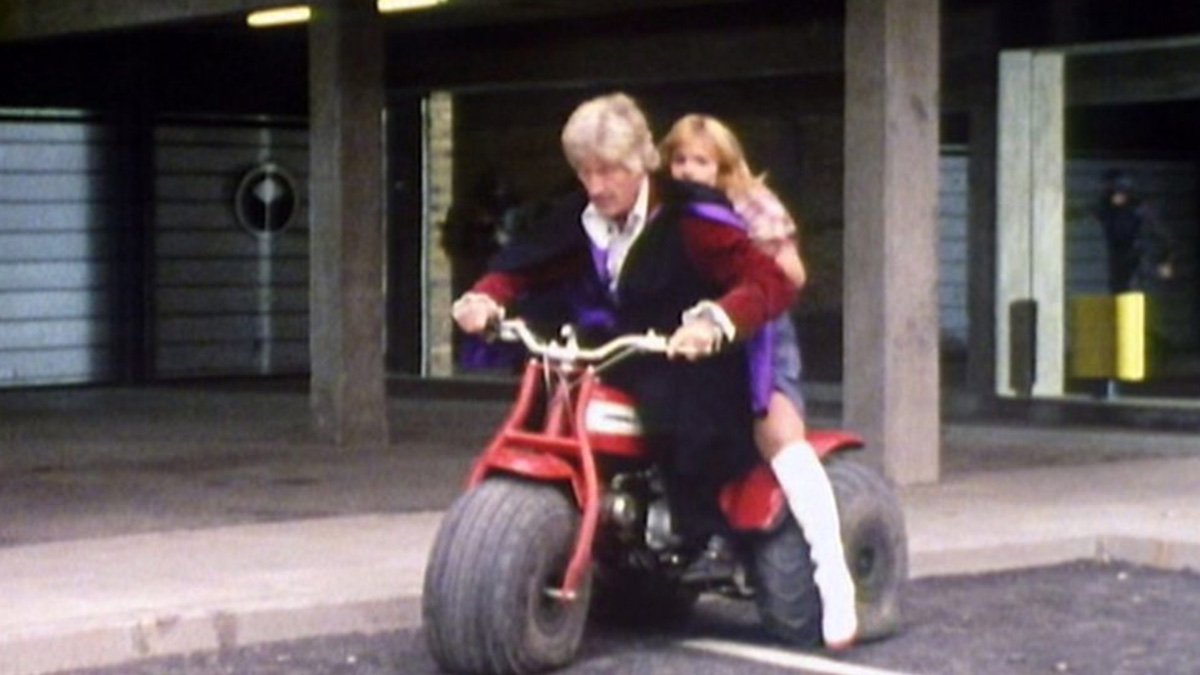

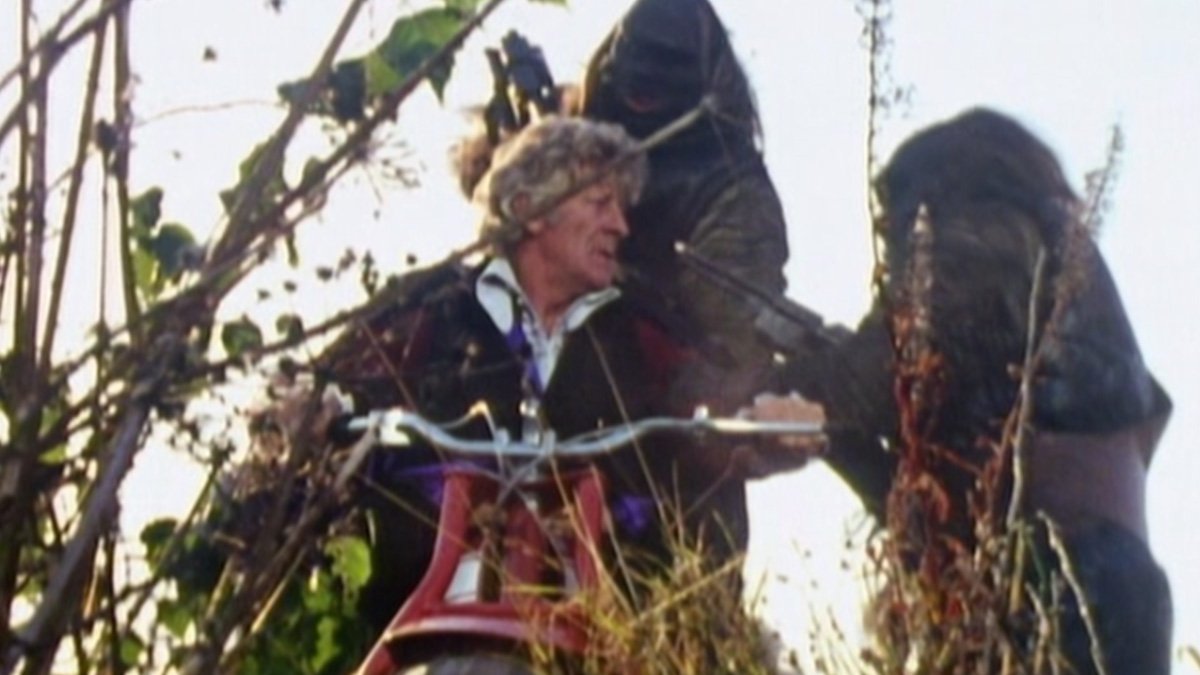

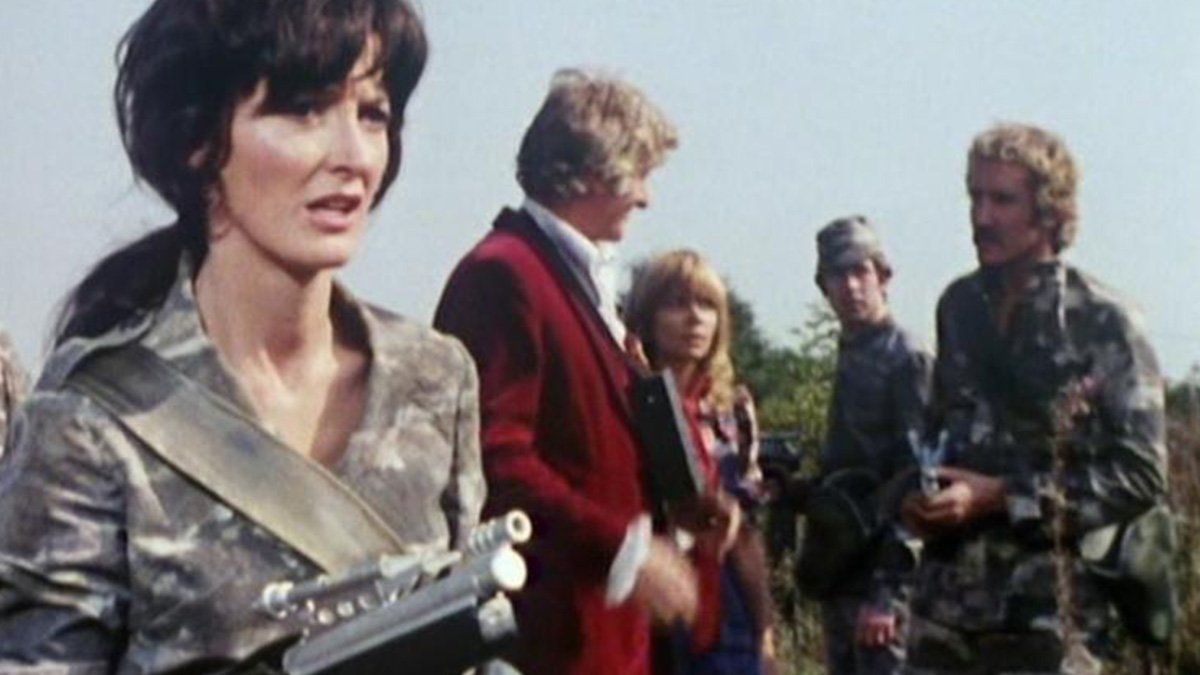

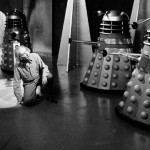
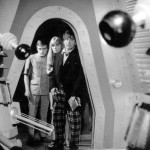
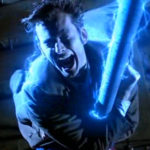
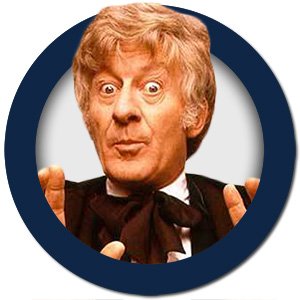



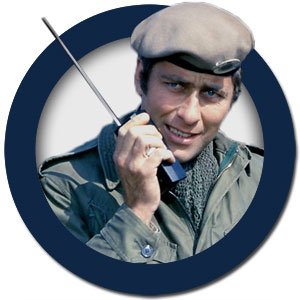
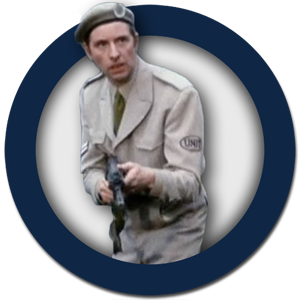
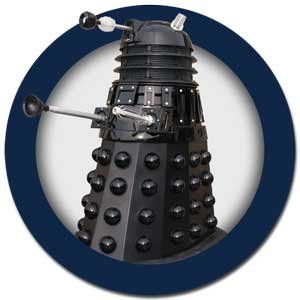
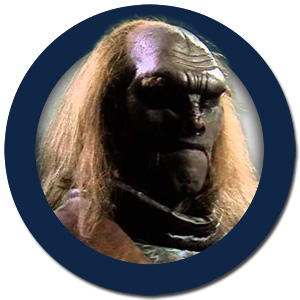







British diplomat Sir Reginald Styles was attacked by what he described as a ghost while working late at Auderly House, where he wanted to host an international peace conference. UNIT sent a guerrilla they found near a tunnel on the grounds to a hospital after gorilla like aliens, Ogrons, knocked him out. At his lab, the Doctor examined a futuristic gun manufactured on Earth and realized the black box recovered from the disarmed, unconscious man was a crude time machine. When it activated, the Ogrons’ victim vanished. Despite disinterest in UNIT protection, Styles let the Doctor and Jo spend the night in the house while UNIT patrolled the grounds. He went to China to set up his negotiations before more guerrillas arrived. They encountered the Doctor and Jo, whom they captured before consulting their comrades about Styles’ absence. When UNIT lost touch with two of their men and the house, the Brigadier called, enabling the Doctor to summon aid without his captors’ knowledge.
To everyone’s dismay, Jo picked up the crude time machine UNIT found, turned it on, and vanished. On future Earth, time travel traces were detected but couldn’t be precisely pinpointed. So, before Jo arrived, Daleks, the real masters of Earth, arranged to divert time travelers to the Controller’s headquarters. He told Jo criminal guerrillas would kill the Doctor and persuaded her to revealed what little she knew about them. Back in our time, UNIT came to the Doctor’s rescue, but he was too busy trying to rescue Jo to describe the changed situation. He caught up to the guerrillas and vanished with them as their Daleks and Ogron hunters arrived.
On his own in the future, the Doctor was caught exploring a factory reminiscent of a labor camp. His interrogation ended as a guerrilla made contact and the Controller interrupted, eventually persuading the Daleks, to whom he delivered the Doctor, he could extract valuable information from their greatest foe. Reunited with Jo, the Doctor accused the Controller of being a traitor, despite any human suffering he may have alleviated, because he worked for, not against, the Daleks. Guerrillas, who’d kept tabs on both the Doctor and Jo, arrived to rescue them and would have killed the Controller if the Doctor hadn’t pointed out someone else would have served the Daleks in his place. Having failed the Daleks, they exterminated the Controller.
Guerrillas held Sir Reginald Styles responsible for an explosion that destroyed his peace conference, led to war, weakened Earth, and allowed the Daleks to conquer. The time traveling fighters urged the Doctor to return and kill the diplomat, but the Time Lord refused, declaring murder unacceptable. He asked if guerrillas remained in the 20th Century. One did and it became clear his bomb brought about the war and Dalek conquest. The Doctor and Jo returned, followed by Daleks and Ogrons intent upon killing Styles to preserve the future. The Doctor told the Brigadier to clear the house while delegates arrived for Styles’ conference. Then, he found the guerrilla from the future, but wasn’t able to persuade the bomber to set a timer and escape. When the house blew up, it took out the Dalek party and saved Styles’ conference.
Time travel gave DOCTOR WHO a limitless canvas for storytelling from its inception. In light of this fact, the show’s Earthbound format from the early 1970s, intended to stretch resources and save money, may seem odd. Nevertheless, this format encouraged continuity, like Jo recalling her first trip in the TARDIS to a space colony, and enabled her and the Doctor to routinely deal with familiar characters operating within a consistent framework. This context was UNIT, a group of Geneva based paramilitary investigators. Brigadier Lethbridge Stewart led the British UNIT troops with his right hand man, Captain Yates, while Sergeant Benton supported them ably. The BBC serves an island nation and wouldn’t have spent the money to transform the Doctor and Jo into globe trotting predecessors to Mulder and Scully. In “Day of the Daleks”, UNIT connected the Doctor and Jo to Styles’ problems, both the attacks from the future and the peace conference upon which the story’s plot hinged. So, time travel was neither to cheat around the show’s format nor a break with it, in this serial, but a crucial plot point.
More continuity occurred as the Daleks questioned the Doctor with a mind probe while images of William Hartnell and Patrick Troughton, the actors who portrayed the character’s former selves, appeared. These images portended both actors’ forthcoming appearance in the next year’s tenth anniversary special and, together with the Daleks, linked this color serial to the Doctor’s past black and white adventures. The last Dalek serial had originally aired four years previously and was retransmitted one year later. Toward the end of the last episode, the Doctor speculated, “I think we’ve seen the end of the Daleks forever,” and the quest was on to find a monster capable of matching their popularity with viewers.. Making the Doctor’s chief nemesis a power behind the throne in this serial not only changed each episode’s concluding cliffhanger, it necessitated obtaining Terry Nation’s permission to use the alien menace he had created and owned, which was the right thing to do. Like other things the format Producer Barry Letts inherited stopped, the mechanically sibilant, modulated grating voices of Daleks seemed to have changed. Also, an audio tag added to signal each episode’s closing credits remained during the next episode’s reprise. Despite these oddities, Daleks elevated and improved writer Louis Marks’ clever ghost story, which incorporated both time travel and a paradox.
The Doctor Who episode best enjoyed with wine and cheese! (I still taste my wine the ‘3rd Doctor method’ because of this episode, swishing wine around my chops to get the ultimate flavour). I also watched the DVD ‘Special Edition’ with wacky extra battle scenes of stem-gun toting UNIT guys being exterminated (lovingly filmed by fans with 70s era cameras) and Nicholas Briggs as the Daleks voices (it’s WAY better!).
What an absolute cracker (gettit!) of a story. Grim Dystopia, thought provoking temporal paradox, space guerrillas, the wonderful apelike Ogrons, the ONLY UNIT vs Dalek story, and no Master (whom you are probably grateful for a break from?). So many good lines; “try and use your intelligence man even if you are a politician”. It’s probably the first non-Dalek Dalek story – the Daleks are merely opportunists here. The Controller is an awesomely tragic figure, the Doctor saving him from the guerrillas (“they would always have found someone” has such gravitas) and his death still makes me sad. And the Doctor dropping the mic with the Guerrillas “You did it yourselves!” still haunts me.
Niggles: What are the human slaves in the future actually doing (they seem to be sorting gravel?). UNIT are pretty useless throughout. Yates is a total git to Benton (Foreboding (SPOILER ALERT) of things to come in the Invasion of the Dinosaurs…?). Why are the delegates walking so calmly out of the house when there is a total bloodbath space war going on RIGHT outside!? What was the point of that news reporter (couldn’t he have at least been exterminated!?). Was blowing up the house even really necessary?
4.1/5 bullet riddled ogrons
I said that this was the ONlLY UNIT vs Dalek story. I guess there are confrontations in new Who in The Stolen Earth (sort of) with the Daleks taking down the Valiant (which is a UNIT ship?) and the Big Finish stories that turn the military unit in the (Amazing!) 7th doctor story ‘Remembrance of the Daleks’ into the precursor of UNIT….?
What’s not to like? Okay it’s not the best story ever, but by no means is it the worst. It’s a little predictable at times, but it’s got Ogrons, and Daleks, and time travel as part of the plot. It’s just Dr. Who done right.
What hits home more than anything here has nothing to do with the story itself. This story shows how much everyone has become friends, especially Joe and the Dr. It doesn’t seem likely, but they end up getting along so well.
The antithesis of some of the other stories we’ve covered, this story is a prime example of someone wisely saying, “we could make it six episodes long, but it works much better as a four parter”. If it were dragged out any longer it would be a total bore, but instead it moves at a quick pace and never lets up. Just when you thought it was settling down into its main story it becomes something quite different yet again.
The result is a serial in which we care about all the characters presented, and the main enemy takes a back seat to the development that unfolds not around them, but because of them. It’s all topped off with an ending where even if you saw it coming, it still pays off in spades.
Retro re-write of the week goes to Joe’s gullibility. As naïve as she is, I can’t believe she’d fall for what the bad guys are selling. It’s a small complaint but it bothers me. There should have been some hint that she was playing them as much as they were playing her. In the production department, I really have no issues. Artistically it’s great, other than a slow moving door that seems to open before anyone even knows they want to go through it, and a tricorder for a tardis.
It’s not the best, but I really enjoy this story every time I watch it. It’s a personal favorite of mine simply for the character development and the time travel story done right. For this reason it earns a, “’would you like a piece of cheese’ says the girl in the red nickers”, 3.7”
Hello,
Just want to congratulate you first of all on an excellent podcast. I worked my way through some of the others before finding WhobackWhen but found them all to be either too obsessively fanboy-ish, overtly critical, just plain pretentious, or none of the above! At first, I thought you were just a bunch of wankers pissing about, but after listening for just 10 minutes I soon realised that your podcast had in fact actually got it exactly right. Well done!
Thought I’d write in with a brief review and rating for this serial, having just watched it recently, as well as throwing a couple of things you may or may not have known.
Curiously enough, for a show that deals primarily with time travel, this was one of the first Doctor Who serials (if not the first) to deal specifically with the implications of such practice. Exploring the paradox of time travel and making it a focal point for this adventure was therefore an exciting concept, and of great interest to myself. I don’t usually like the Dalek stories much, but thought that they were (fortunately) somewhat superfluous on this particular occasion. It is interesting to note that the BBC only had three remaining Dalek props at their disposal at the time, and their condition leaves a lot to be desired. The Ogrons were great in this however, as were the future humans with their somewhat weird way of interacting with one another, shiny faces/hands, and convincing interior/exterior sets and shots (apart from the shoot-out scene around what looks like a silver-painted skip outside BBC television centre). Unusually for Who at and around this period, their way of interfacing with computers was extremely plausible and the gun blast effects were excellent. For these reasons, I wish to give this hugely entertaining serial a 3.9 rating.
Apparently, a row had broken out between Barry Hayles and Terry Nation, mainly because he hadn’t been consulted beforehand about using the Daleks for this serial. I also read somewhere that the Daleks’ mind exploration device (or whatever the hell it was called), was supposed to show the Doctor Who title sequence when activated, complete with captions. This was not the case with the version I saw on that internet… either I missed something, or perhaps the scene in question has since been ‘doctored’ (no pun intended, as indeed neither are bland, predictable and unfunny footnotes such as these).
I don’t mind if you read this out or not, but I’m not on Twitter or any of that bollocks and I’d rather you kept my e-mail identity/address a secret.
All the best,
Arthur Fuxake
Hey guys! I am Tracey. This is my mini.
This story started off boring and got better. Day of the Daleks seemed at first like another story pointlessly involving time travel and Daleks. I mean- they chase us, we run away, we’re in the past, we’re in the future, blah blah blah.
I was quite concerned it was going to be a draggy mess like The Daleks’ Master Plan. Indeed the first three episodes were on the boring side. But then episode four suddenly went full sci-fi with the reveal that it’s not Sir Boringtron Styles who bombs the human race’s chance for peace, it’s actually the rebels trying to off Styles. Great concept, I love a good time paradox plot twist.
Rating: salted pretzel at a carnival
[…] The Controller and the Daleks (Way Back When: C060 Day of the Daleks) […]